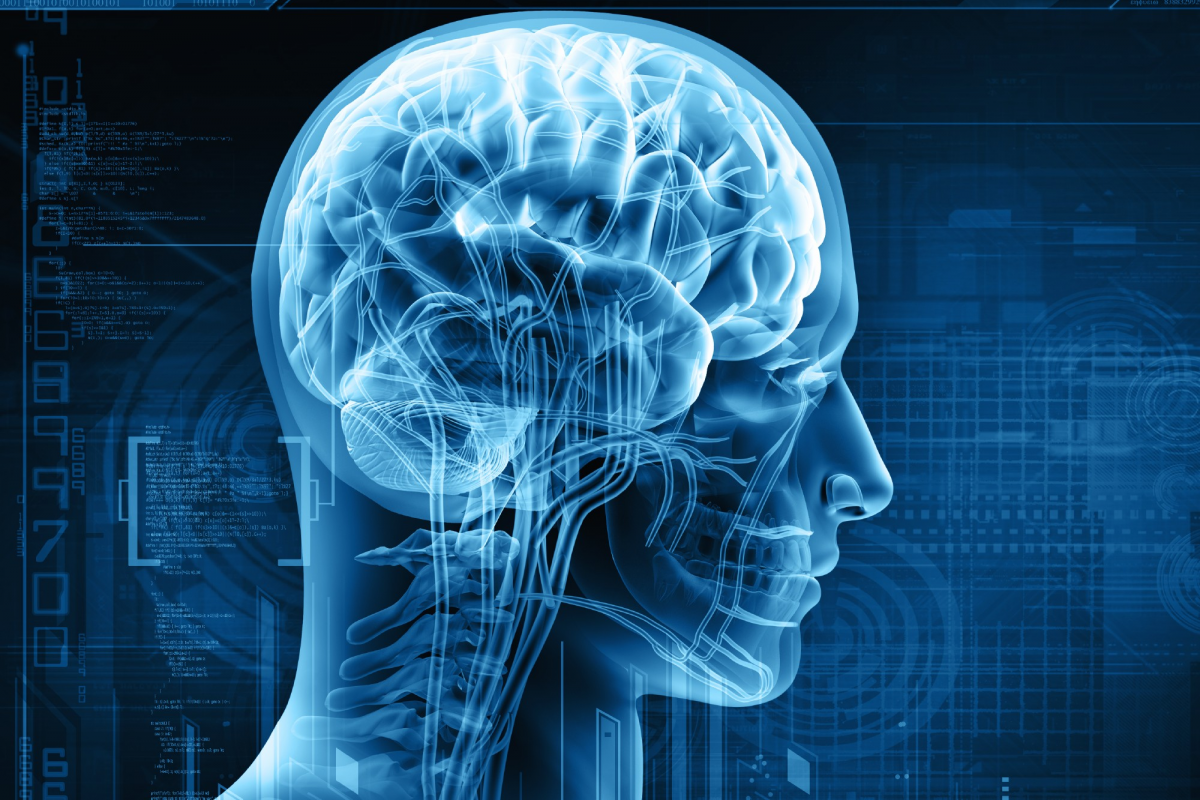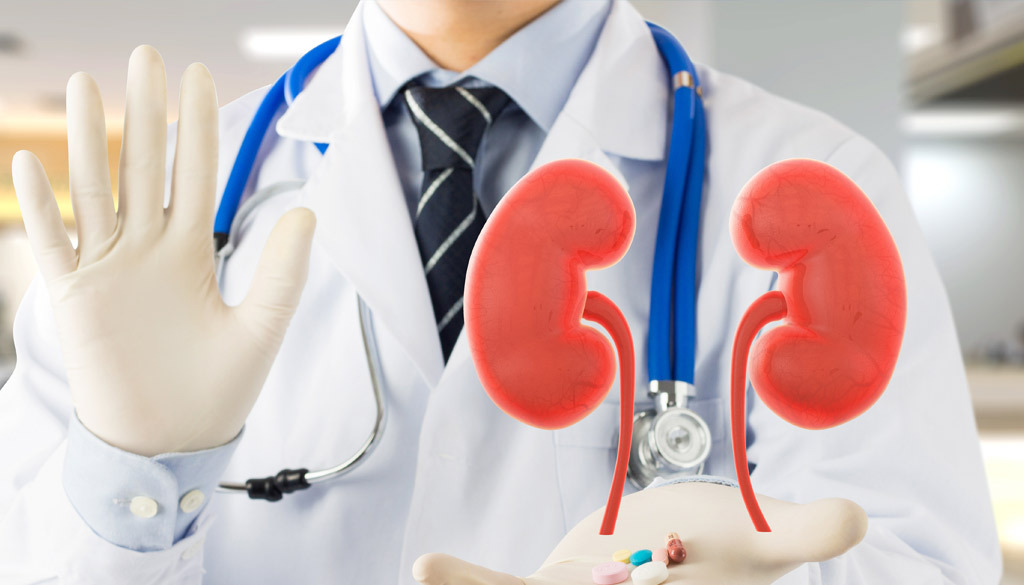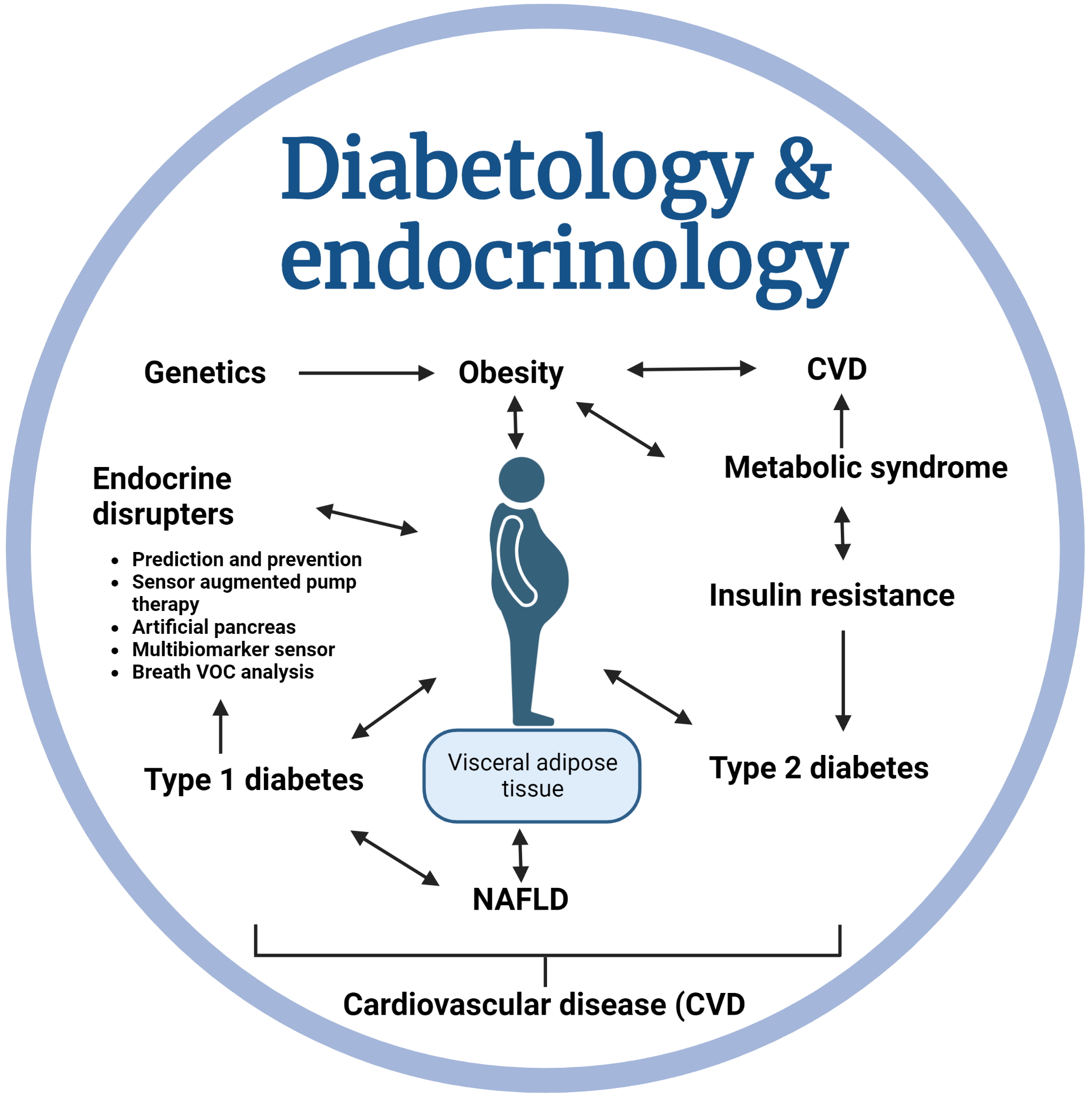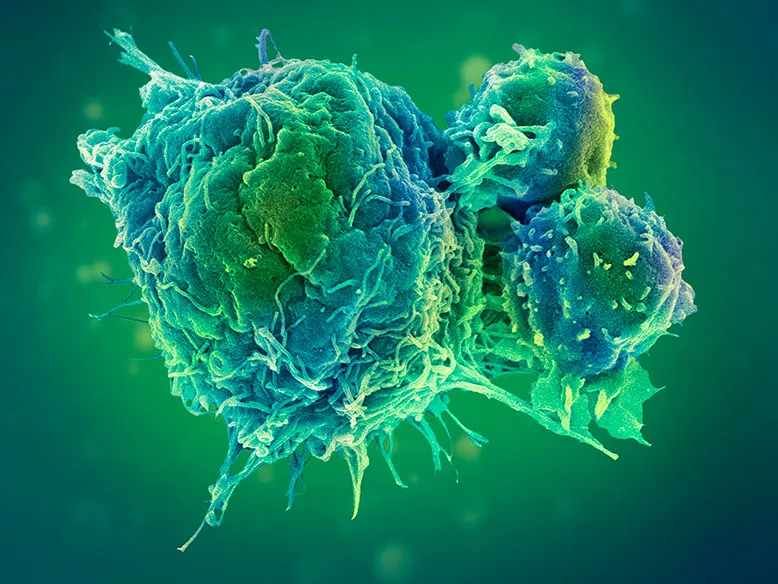Path Labs
You no longer have to make the effort to go to the diagnostic center for your routine tests. Our specialized home blood collection services are available, specifically designed for elderly and disabled patients.
LEARN MORE
Excellence in Diagnostic Services

The study and treatment of blood disorders is called Hematology. Problems with the blood can impede many functions of the body and cause a range of complications.

It is the study of the chemical substances and processes that occur in microorganisms and of the changes they undergo during development and life. It is a laboratory based science that brings together biology and chemistry.

The immune system protects us from infection through various lines of defence. If the immune system is not functioning as it should, it can result in disease, such as autoimmunity, allergy and cancer.

Cytology is the exam of a single cell type, as often found in fluid specimens. It's mainly used to diagnose or screen for cancer. It's also used to screen for fetal abnormalities, for pap smears, to diagnose infectious organisms, and in other screening and diagnostic areas.

Microbiology is the study of microscopic organisms, such as bacteria, viruses, archaea, fungi and protozoa. This discipline includes fundamental research on the biochemistry, physiology, cell biology, ecology, evolution and clinical aspects of microorganisms, including the host response to these agents.

molecular biology studies macromolecules and the macromolecular mechanisms found in living things, such as the molecular nature of the gene and its mechanisms of gene replication, mutation, and expression.


The Cardiac Department is a specialized medical unit within a hospital dedicated to diagnosing, treating, and managing conditions related to the heart and blood vessels. It houses a team of healthcare professionals, including cardiologists, cardiac surgeons, nurses, and technicians, who work collaboratively to provide comprehensive care for patients with heart-related issues.
Services offered in the Cardiac Department typically include diagnostic procedures such as electrocardiograms (ECGs), echocardiograms, stress tests, and cardiac catheterization. Treatment options may range from medication management and lifestyle modifications to interventional procedures like angioplasty and stent placement, as well as surgical interventions such as bypass surgery and valve repair or replacement.
The Cardiac Department plays a crucial role in the prevention, diagnosis, and management of cardiovascular diseases, aiming to improve patients' quality of life and reduce the risk of complications associated with heart conditions.
Medicare Diagnostic Center in Balasore is renowned as one of the top facilities in the nation for cardiovascular services, offering a comprehensive approach to heart care. Our team of Cardiologists in Balasore town utilizes state-of-the-art diagnostic tests and cutting-edge treatments for heart disease. We specialize in procedures like angioplasty, laser, and ultrasound techniques to ensure the best possible care for our patients.

The Cardiac Department is a specialized medical unit within a hospital dedicated to diagnosing, treating, and managing conditions related to the heart and blood vessels. It houses a team of healthcare professionals, including cardiologists, cardiac surgeons, nurses, and technicians, who work collaboratively to provide comprehensive care for patients with heart-related issues.
Services offered in the Cardiac Department typically include diagnostic procedures such as electrocardiograms (ECGs), echocardiograms, stress tests, and cardiac catheterization. Treatment options may range from medication management and lifestyle modifications to interventional procedures like angioplasty and stent placement, as well as surgical interventions such as bypass surgery and valve repair or replacement.
The Cardiac Department plays a crucial role in the prevention, diagnosis, and management of cardiovascular diseases, aiming to improve patients' quality of life and reduce the risk of complications associated with heart conditions.
Medicare Diagnostic Center in Balasore is renowned as one of the top facilities in the nation for cardiovascular services, offering a comprehensive approach to heart care. Our team of Cardiologists in Balasore town utilizes state-of-the-art diagnostic tests and cutting-edge treatments for heart disease. We specialize in procedures like angioplasty, laser, and ultrasound techniques to ensure the best possible care for our patients.

The Neurology Department is a specialized medical unit focused on the diagnosis, treatment, and management of disorders affecting the nervous system. This department encompasses a wide range of conditions, including but not limited to neurological diseases like epilepsy, multiple sclerosis, Parkinson's disease, Alzheimer's disease, stroke, headaches, and neuromuscular disorders. Neurologists, the medical professionals who work in this department, are highly trained in evaluating and treating patients with neurological symptoms, often utilizing advanced diagnostic techniques such as MRI scans, CT scans, EEGs, and nerve conduction studies. Treatment approaches may involve medication management, physical therapy, occupational therapy, speech therapy, and in some cases, surgical interventions. The Neurology Department plays a crucial role in improving the quality of life for patients with neurological disorders through comprehensive care and ongoing research advancements.
At the Balasore Medicare Diagnostic Center, we provide a comprehensive array of consultation services to assess patients with both acute and chronic neurological conditions. Our team of esteemed neurologists, in conjunction with our cutting-edge facilities, delivers exceptional healthcare and achieves favorable outcomes through life-saving procedures. By incorporating state-of-the-art technology and advancements in pre-operative assessments and post-operative care, we guarantee that all our patients have complete access to advanced diagnostics. This approach not only aids in reducing the risk of infection but also prevents the recurrence of neurological issues and other disorders. That's why we are the Best Diagnostic Center in Balasore.

The Neurology Department is a specialized medical unit focused on the diagnosis, treatment, and management of disorders affecting the nervous system. This department encompasses a wide range of conditions, including but not limited to neurological diseases like epilepsy, multiple sclerosis, Parkinson's disease, Alzheimer's disease, stroke, headaches, and neuromuscular disorders. Neurologists, the medical professionals who work in this department, are highly trained in evaluating and treating patients with neurological symptoms, often utilizing advanced diagnostic techniques such as MRI scans, CT scans, EEGs, and nerve conduction studies. Treatment approaches may involve medication management, physical therapy, occupational therapy, speech therapy, and in some cases, surgical interventions. The Neurology Department plays a crucial role in improving the quality of life for patients with neurological disorders through comprehensive care and ongoing research advancements.
At the Balasore Medicare Diagnostic Center, we provide a comprehensive array of consultation services to assess patients with both acute and chronic neurological conditions. Our team of esteemed neurologists, in conjunction with our cutting-edge facilities, delivers exceptional healthcare and achieves favorable outcomes through life-saving procedures. By incorporating state-of-the-art technology and advancements in pre-operative assessments and post-operative care, we guarantee that all our patients have complete access to advanced diagnostics. This approach not only aids in reducing the risk of infection but also prevents the recurrence of neurological issues and other disorders. That's why we are the Best Diagnostic Center in Balasore.

The Medicine Department is a vital component of healthcare institutions, encompassing various specialties focused on the diagnosis, treatment, and prevention of illnesses and diseases. Physicians, specialists, nurses, and other healthcare professionals collaborate within this department to provide comprehensive medical care to patients. From primary care to specialized fields such as cardiology, oncology, neurology, and more, the Medicine Department addresses a wide range of health concerns. It often serves as the frontline in patient care, offering diagnostics, treatments, and ongoing management plans to improve health outcomes and enhance quality of life. Additionally, the Medicine Department plays a significant role in medical research, education, and training future generations of healthcare professionals.

The Medicine Department is a vital component of healthcare institutions, encompassing various specialties focused on the diagnosis, treatment, and prevention of illnesses and diseases. Physicians, specialists, nurses, and other healthcare professionals collaborate within this department to provide comprehensive medical care to patients. From primary care to specialized fields such as cardiology, oncology, neurology, and more, the Medicine Department addresses a wide range of health concerns. It often serves as the frontline in patient care, offering diagnostics, treatments, and ongoing management plans to improve health outcomes and enhance quality of life. Additionally, the Medicine Department plays a significant role in medical research, education, and training future generations of healthcare professionals.

The Orthopedology Department is a specialized medical unit dedicated to the diagnosis, treatment, and management of musculoskeletal conditions and injuries. It encompasses a wide range of orthopedic specialties, including orthopedic surgery, sports medicine, pediatric orthopedics, orthopedic trauma, and joint replacement. Within this department, orthopedic surgeons, physicians, nurses, therapists, and other healthcare professionals collaborate to provide comprehensive care to patients with orthopedic issues. Treatment modalities may include surgical interventions, such as joint replacement or fracture repair, as well as non-surgical approaches like physical therapy, medication management, and orthotic devices. The primary goal of the Orthopedology Department is to restore mobility, alleviate pain, and improve the overall quality of life for patients with musculoskeletal disorders.

The Orthopedology Department is a specialized medical unit dedicated to the diagnosis, treatment, and management of musculoskeletal conditions and injuries. It encompasses a wide range of orthopedic specialties, including orthopedic surgery, sports medicine, pediatric orthopedics, orthopedic trauma, and joint replacement. Within this department, orthopedic surgeons, physicians, nurses, therapists, and other healthcare professionals collaborate to provide comprehensive care to patients with orthopedic issues. Treatment modalities may include surgical interventions, such as joint replacement or fracture repair, as well as non-surgical approaches like physical therapy, medication management, and orthotic devices. The primary goal of the Orthopedology Department is to restore mobility, alleviate pain, and improve the overall quality of life for patients with musculoskeletal disorders.

A urologist is a medical doctor who specializes in diagnosing and treating diseases and disorders of the urinary tract system in both males and females, as well as the male reproductive system. This includes organs such as the kidneys, bladder, ureters, urethra, and the male reproductive organs including the testes, prostate, and penis.
Urologists undergo extensive training, typically completing medical school followed by a residency program focused specifically on urology. Some may also pursue additional fellowship training in subspecialties such as pediatric urology, urologic oncology, female urology, or male infertility.
Their expertise spans a wide range of conditions, including urinary tract infections, kidney stones, urinary incontinence, erectile dysfunction, prostate disorders (such as benign prostatic hyperplasia and prostate cancer), male infertility, and cancers of the urinary tract system. They employ various diagnostic tools and techniques such as imaging studies, laboratory tests, and minimally invasive procedures to evaluate and treat these conditions.
Urologists often work closely with other medical specialists such as oncologists, nephrologists, gynecologists, and primary care physicians to provide comprehensive care for their patients. They may perform surgeries ranging from minimally invasive procedures like cystoscopy and laser lithotripsy to major surgeries such as prostatectomy or nephrectomy.
In addition to their clinical duties, urologists may also engage in research to advance the field of urology, contribute to medical education by teaching and supervising medical students and residents, and participate in community outreach programs to raise awareness about urologic health issues. Overall, urologists play a crucial role in helping patients maintain optimal urinary and reproductive health throughout their lives.

A urologist is a medical doctor who specializes in diagnosing and treating diseases and disorders of the urinary tract system in both males and females, as well as the male reproductive system. This includes organs such as the kidneys, bladder, ureters, urethra, and the male reproductive organs including the testes, prostate, and penis.
Urologists undergo extensive training, typically completing medical school followed by a residency program focused specifically on urology. Some may also pursue additional fellowship training in subspecialties such as pediatric urology, urologic oncology, female urology, or male infertility.
Their expertise spans a wide range of conditions, including urinary tract infections, kidney stones, urinary incontinence, erectile dysfunction, prostate disorders (such as benign prostatic hyperplasia and prostate cancer), male infertility, and cancers of the urinary tract system. They employ various diagnostic tools and techniques such as imaging studies, laboratory tests, and minimally invasive procedures to evaluate and treat these conditions.
Urologists often work closely with other medical specialists such as oncologists, nephrologists, gynecologists, and primary care physicians to provide comprehensive care for their patients. They may perform surgeries ranging from minimally invasive procedures like cystoscopy and laser lithotripsy to major surgeries such as prostatectomy or nephrectomy.
In addition to their clinical duties, urologists may also engage in research to advance the field of urology, contribute to medical education by teaching and supervising medical students and residents, and participate in community outreach programs to raise awareness about urologic health issues. Overall, urologists play a crucial role in helping patients maintain optimal urinary and reproductive health throughout their lives.

Otolaryngology, more commonly known as ENT (Ear, Nose, and Throat), is a medical specialty that focuses on the diagnosis and treatment of disorders and diseases related to the ear, nose, throat, head, and neck regions. Physicians who specialize in this field are called otolaryngologists or ENT doctors.
ENT encompasses a wide range of conditions, including hearing loss, ear infections, sinusitis, tonsillitis, voice and swallowing disorders, sleep apnea, allergies, and head and neck cancers. Otolaryngologists are trained to provide both medical and surgical treatments for these issues.
In addition to treating common ailments such as ear infections and allergies, ENT specialists also perform intricate surgeries, including cochlear implants for hearing restoration, rhinoplasty for nasal reconstruction, and tonsillectomies for recurrent tonsillitis.
ENT doctors often work closely with other medical specialists, such as audiologists, speech-language pathologists, neurologists, and oncologists, to provide comprehensive care for patients with complex conditions.
The field of otolaryngology continues to evolve with advancements in medical technology and research, allowing for more precise diagnoses and innovative treatment options. Overall, ENT plays a crucial role in improving the quality of life for individuals affected by disorders and diseases of the ear, nose, and throat.

Otolaryngology, more commonly known as ENT (Ear, Nose, and Throat), is a medical specialty that focuses on the diagnosis and treatment of disorders and diseases related to the ear, nose, throat, head, and neck regions. Physicians who specialize in this field are called otolaryngologists or ENT doctors.
ENT encompasses a wide range of conditions, including hearing loss, ear infections, sinusitis, tonsillitis, voice and swallowing disorders, sleep apnea, allergies, and head and neck cancers. Otolaryngologists are trained to provide both medical and surgical treatments for these issues.
In addition to treating common ailments such as ear infections and allergies, ENT specialists also perform intricate surgeries, including cochlear implants for hearing restoration, rhinoplasty for nasal reconstruction, and tonsillectomies for recurrent tonsillitis.
ENT doctors often work closely with other medical specialists, such as audiologists, speech-language pathologists, neurologists, and oncologists, to provide comprehensive care for patients with complex conditions.
The field of otolaryngology continues to evolve with advancements in medical technology and research, allowing for more precise diagnoses and innovative treatment options. Overall, ENT plays a crucial role in improving the quality of life for individuals affected by disorders and diseases of the ear, nose, and throat.

Endocrinology is a branch of medicine that deals with the study of hormones and their effects on bodily functions. Hormones are chemical messengers that regulate various processes in the body, such as metabolism, growth and development, reproduction, and mood. The endocrine system consists of glands that secrete hormones directly into the bloodstream, where they travel to target organs and tissues to exert their effects.
Endocrinologists are medical specialists who diagnose and treat disorders related to hormone imbalances. These disorders can affect numerous systems in the body and may arise from dysfunction of the endocrine glands or from abnormalities in hormone receptors or signaling pathways.
Some common endocrine disorders include:
1. Diabetes mellitus: A condition characterized by high blood sugar levels resulting from either insufficient insulin production (Type 1 diabetes), ineffective use of insulin (Type 2 diabetes), or a combination of both. Diabetes can lead to serious complications affecting the eyes, kidneys, nerves, and cardiovascular system.
2. Thyroid disorders: Conditions such as hypothyroidism (underactive thyroid) and hyperthyroidism (overactive thyroid) can disrupt metabolism and cause symptoms like fatigue, weight changes, and mood disturbances.
3. Adrenal disorders: Disorders of the adrenal glands, such as Cushing's syndrome (excess cortisol production) and Addison's disease (insufficient cortisol and aldosterone production), can affect energy levels, blood pressure, and electrolyte balance.
4. Pituitary disorders: The pituitary gland, often referred to as the "master gland," secretes hormones that regulate other endocrine glands. Disorders of the pituitary gland can disrupt hormone production throughout the body, leading to a wide range of symptoms.
Diabetology is a specialized field within endocrinology that focuses specifically on the diagnosis, treatment, and management of diabetes and its complications. Diabetologists work closely with patients to develop personalized treatment plans that may include medication, lifestyle modifications (such as diet and exercise), and monitoring of blood sugar levels.
In summary, endocrinology and diabetology are closely related medical specialties that play a crucial role in managing hormone-related disorders and improving the health and well-being of patients.

Endocrinology is a branch of medicine that deals with the study of hormones and their effects on bodily functions. Hormones are chemical messengers that regulate various processes in the body, such as metabolism, growth and development, reproduction, and mood. The endocrine system consists of glands that secrete hormones directly into the bloodstream, where they travel to target organs and tissues to exert their effects.
Endocrinologists are medical specialists who diagnose and treat disorders related to hormone imbalances. These disorders can affect numerous systems in the body and may arise from dysfunction of the endocrine glands or from abnormalities in hormone receptors or signaling pathways.
Some common endocrine disorders include:
1. Diabetes mellitus: A condition characterized by high blood sugar levels resulting from either insufficient insulin production (Type 1 diabetes), ineffective use of insulin (Type 2 diabetes), or a combination of both. Diabetes can lead to serious complications affecting the eyes, kidneys, nerves, and cardiovascular system.
2. Thyroid disorders: Conditions such as hypothyroidism (underactive thyroid) and hyperthyroidism (overactive thyroid) can disrupt metabolism and cause symptoms like fatigue, weight changes, and mood disturbances.
3. Adrenal disorders: Disorders of the adrenal glands, such as Cushing's syndrome (excess cortisol production) and Addison's disease (insufficient cortisol and aldosterone production), can affect energy levels, blood pressure, and electrolyte balance.
4. Pituitary disorders: The pituitary gland, often referred to as the "master gland," secretes hormones that regulate other endocrine glands. Disorders of the pituitary gland can disrupt hormone production throughout the body, leading to a wide range of symptoms.
Diabetology is a specialized field within endocrinology that focuses specifically on the diagnosis, treatment, and management of diabetes and its complications. Diabetologists work closely with patients to develop personalized treatment plans that may include medication, lifestyle modifications (such as diet and exercise), and monitoring of blood sugar levels.
In summary, endocrinology and diabetology are closely related medical specialties that play a crucial role in managing hormone-related disorders and improving the health and well-being of patients.

Oncology is a branch of medicine that deals with the prevention, diagnosis, and treatment of cancer. It encompasses a wide range of medical disciplines, including surgery, radiation therapy, chemotherapy, immunotherapy, and targeted therapy, all aimed at managing and potentially curing cancer.
Oncologists, the medical professionals specializing in oncology, work tirelessly to understand the complexities of cancer and develop effective strategies to combat it. They collaborate with other healthcare professionals, such as surgeons, radiologists, pathologists, and nurses, to provide comprehensive care to cancer patients.
The field of oncology is continually evolving, with advancements in research leading to the discovery of new treatment modalities and therapies. Precision medicine, for instance, tailors treatment plans based on the genetic makeup of a patient's tumor, allowing for more personalized and targeted interventions.
In addition to treating cancer, oncologists also play a crucial role in educating patients about their condition, discussing treatment options, managing symptoms and side effects, and providing support throughout the cancer journey. They emphasize the importance of early detection through screenings and promote lifestyle changes that may reduce the risk of developing cancer.
Despite the challenges posed by cancer, the field of oncology offers hope through groundbreaking research, innovative treatments, and a compassionate approach to patient care. Through collaboration, dedication, and a commitment to advancing medical science, oncologists strive to improve outcomes and enhance the quality of life for individuals affected by cancer.

Oncology is a branch of medicine that deals with the prevention, diagnosis, and treatment of cancer. It encompasses a wide range of medical disciplines, including surgery, radiation therapy, chemotherapy, immunotherapy, and targeted therapy, all aimed at managing and potentially curing cancer.
Oncologists, the medical professionals specializing in oncology, work tirelessly to understand the complexities of cancer and develop effective strategies to combat it. They collaborate with other healthcare professionals, such as surgeons, radiologists, pathologists, and nurses, to provide comprehensive care to cancer patients.
The field of oncology is continually evolving, with advancements in research leading to the discovery of new treatment modalities and therapies. Precision medicine, for instance, tailors treatment plans based on the genetic makeup of a patient's tumor, allowing for more personalized and targeted interventions.
In addition to treating cancer, oncologists also play a crucial role in educating patients about their condition, discussing treatment options, managing symptoms and side effects, and providing support throughout the cancer journey. They emphasize the importance of early detection through screenings and promote lifestyle changes that may reduce the risk of developing cancer.
Despite the challenges posed by cancer, the field of oncology offers hope through groundbreaking research, innovative treatments, and a compassionate approach to patient care. Through collaboration, dedication, and a commitment to advancing medical science, oncologists strive to improve outcomes and enhance the quality of life for individuals affected by cancer.


Medicare Diagnostic Center in Balasore offers exceptional healthcare services with a commitment to accuracy and patient care. Their well-equipped facility, experienced staff, and timely reports ensure a seamless diagnostic experience. With affordable pricing and a patient-first approach, they have earned a reputation for providing reliable and valuable healthcare solutions. Highly recommended for all your diagnostic needs!

The terms heartburn, acid reflux and GERD are often used interchangeably, though they carry distinct meanings. Acid reflux occurs when stomach acid flows back into the oesophagus, whereas Gastroesophageal reflux…
Kidney disease is a condition in which the kidneys are unable to effectively filter waste products out of the blood, balance electrolytes, and regulate blood pressure. Kidney disease is a…
Nosebleeds, also known as epistaxis, is the loss of blood from the lining of your nose. A combination of small blood vessels inside your nose and dry air causes nosebleeds.…